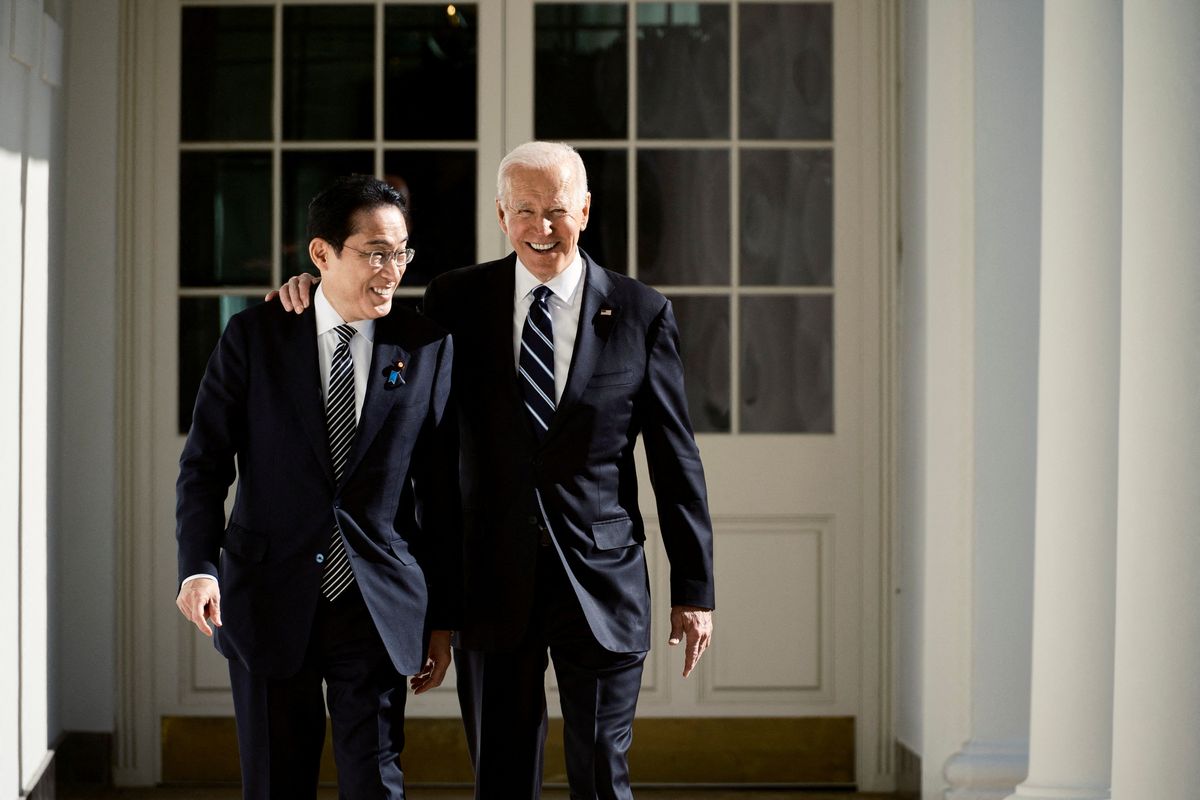Japan’s move to build up its military, explained
Since WWII ended, Japan has kept its military spending pretty low.

A few minutes every morning is all you need.
Stay up to date on the world's Headlines and Human Stories. It's fun, it's factual, it's fluff-free.
The backstory: Since WWII ended, Japan has kept its military spending pretty low. It's actually in Japan's constitution to avoid war, which was something the US encouraged after the end of WWII. Still, Japan does have a defense budget and has kept Self-Defense Forces since 1954.
More recently: Since Russia invaded Ukraine last year, Japan's government has been a little on edge. Prime Minister Fumio Kishida sees the war as an example of the threat eastern Asian countries could face because of China's military strength and North Korea's ramped-up missile tests. So now, Kishida is interested in boosting Japan's military. He's proposed increasing the country's defense budget by 56% over five years.
The development: Kishida has been speaking with Japan's allies to boost the country's defense ties and deter China. He met with French President Emmanuel Macron last week to ask for France's support. He also signed a deal on mutual troop access with the UK and agreed to boost defense ties with Italy. Last week, Kishida also visited US President Biden. They talked about the challenging relationship between their countries and China. But, experts say it may be hard for him to get the people of Japan on board with this plan because of the tax hikes required to pay for it, the country's pacifist culture and Kishida's current political unpopularity.
Key comments:
When Biden welcomed Kishida to the White House last week, he said, “Let me be crystal clear: the United States is fully, thoroughly, completely committed to the alliance and more importantly to Japan’s defense.”
“Russia’s aggression against Ukraine has marked the complete end of the post-cold war world,” Kishida said at Johns Hopkins University’s School of Advanced International Studies on Friday. “If we let this unilateral change in the status quo by force go unchallenged, it will happen elsewhere in the world, including Asia.”
“North Korea is not going to attack out of the blue,” Mike Mochizuki, associate professor of political science and international affairs at George Washington University, explained. “The threat is … a military conflict over the Taiwan Strait and because of Japan’s geographic proximity, because of the US-Japan alliance, and because US military assets in Japan are seen as critical for any kind of viable US military intervention in the Taiwan crisis – because of that, if there is any kind of Taiwan conflict, there is a high probability that China would attack Japanese territory.”




Comments ()